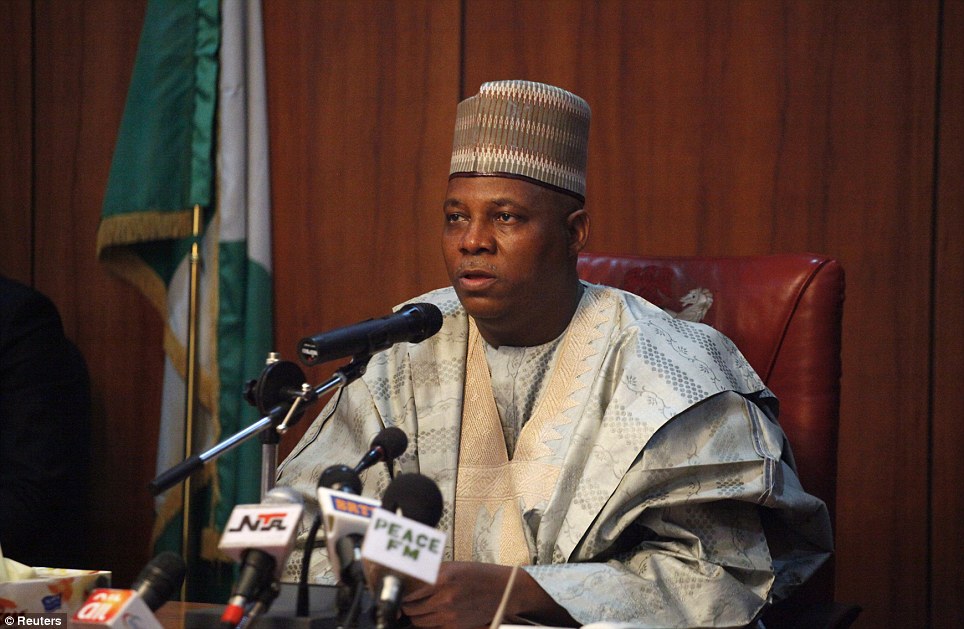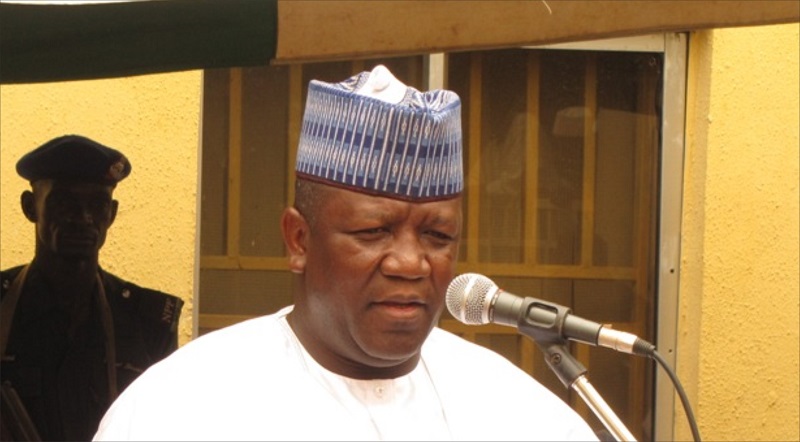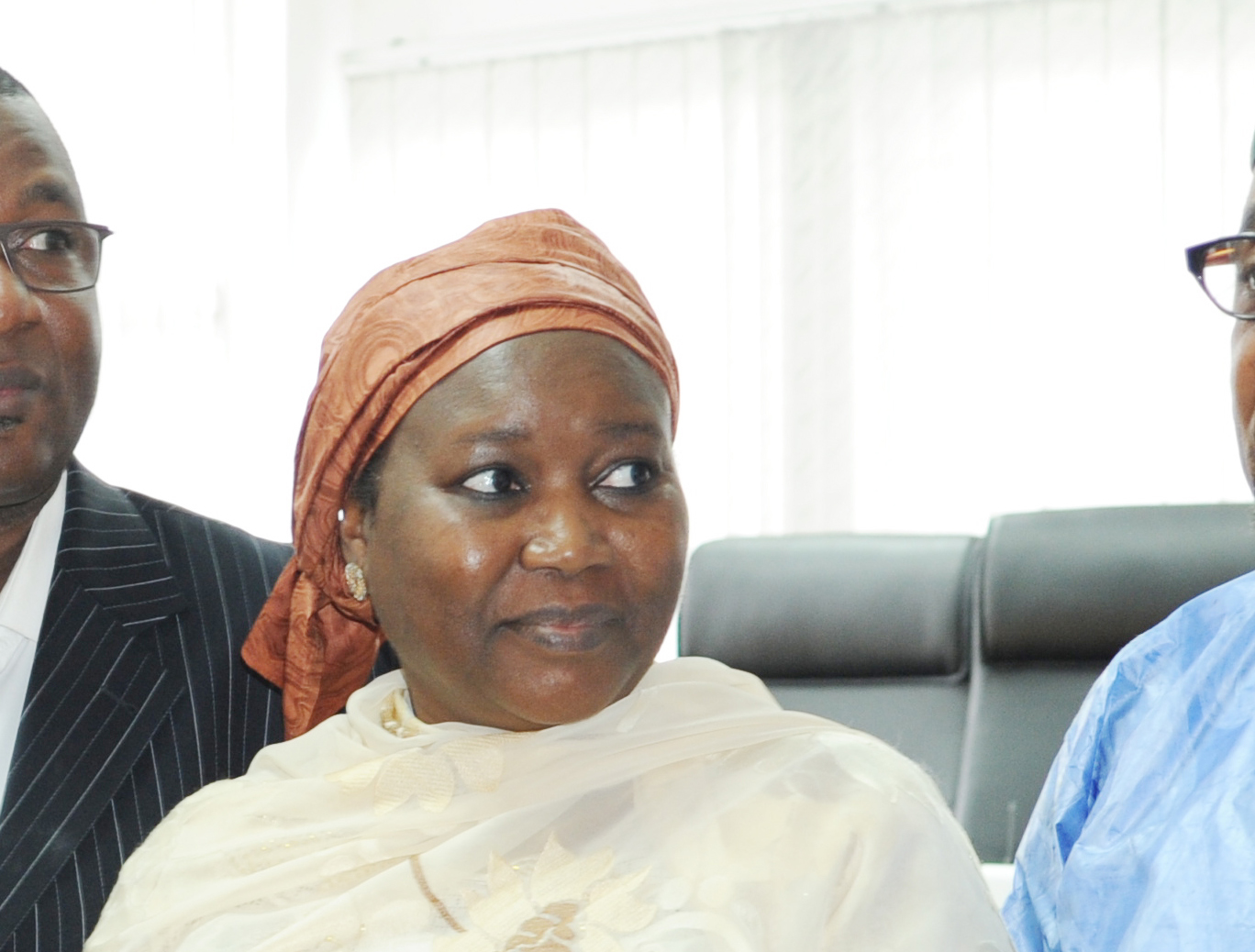Two state governors last week red-flagged the porous security profile of their respective state, which they considered yet heading southwards. Their rallying cry was that there is need for urgent and concerted action by stakeholders, along with government, to arrest the dire trend.
Borno State Governor Kashim Shettima, on Monday, owned up that the insurgency challenge in his domain was worsening despite willful optimism on his part, which all along had made him confess the contrary. But he argued that the way out was not to resort to blaming security agents who were putting their lives on the line to staunch the crisis. Rather, the governor said, all interests concerned should step up to strengthening the counter-insurgency forces towards attaining victory.
Speaking at an extraordinary meeting in the state capital attended by traditional rulers, security chiefs and civil society groups, among others, Shettima indicated that he was being compelled by the present circumstance to step out of the routine mould: “For seven years, we’ve held our regular security council meetings…I never for once convened an extraordinary meeting of this nature because I was avoiding dramatisation or being sensational about our challenges in Borno State.”
He added, however: “I know that in governance, responding to some situations demands a combination of being both optimistic and realistic. The reality is that while so much was achieved by our gallant military men and women, we are today faced with serious challenges in Borno State. But then, these challenges should strengthen our abiding faith and resolve to continually do whatever we can in support of (the security services) and political authorities at the federal level…”
Advertisement
Two days after Shettima spoke, his Katsina State counterpart, Aminu Bello Masari, as well summoned an extraordinary meeting where he declared that the state was under a security siege. The stakeholder parley was thus being convened, he explained, to seek urgent solutions.
According to the Katsina governor, kidnappings, armed robberies, banditry and cattle rustling have become daily occurrences in the state. “No one, not even myself, is safe…Our state is currently under serious siege by armed robbers, kidnappers and armed bandits who arrest rural people at the grassroots at will and demand ransom, which if not paid, they kill their victims,” he said.
Masari also noted that the security challenge has taken on a daredevilry that is all the more alarming, saying: “The Permanent Secretary was just informing me that his close relative was kidnapped and a ransom of N5million was demanded, and the person who took the money to them was shot. Some people visited me, and as they left, they were trailed and robbed of their belongings…It is not up to a month, right here in front of Government House, that five electricity poles were carted away. It is getting out of hand and we should not fold our arms…The people of Katsina in the 34 local governments now sleep with one eye closed and the other opened…”
Advertisement
Barely a week earlier, Zamfara State Governor Abdulaziz Yari voiced his helplessness over the porous security in his state, saying he wouldn’t mind the Federal Government imposing a state of emergency there.
Addressing journalists in the state capital after a meeting of security stakeholders with traditional rulers, Yari said: “I am in support of declaration of state of emergency if it will save the lives of the people of the state…If the provisions of my office had allowed me to carry arms against the bandits, I would have done so. But if I am not around, there are capable hands that can collaborate with the security team in the fight against the bandits.”
The Zamfara governor spoke against the backdrop of the now notorious frenzy of attacks by suspected armed bandits against state residents, in which hundreds have died and many more hundreds injured. One of the latest of such attacks was reported in Magami community, Faru district of Maradun council area where the police confirmed 17 persons killed. Similar attacks were reported in Burane village, Zurmi council area where nearly a score fell casualty; and in Sauna community, Tsafe council area where riots erupted during the Yuletide as residents trooped out to protest unrelenting siege by bandits and kidnappers.
All three governors who spoke up in the recent weeks are members of the ruling All Progressives Congress (APC), hence it is unlikely they were angling for adverse political capital against the security scorecard of the Muhammadu Buhari administration. Actually, it is common knowledge that their respective circumstance is sufficiently precarious to warrant their escalation of the narrative. All three indeed made the dutiful point of applauding present efforts and personal sacrifices by the armed services in their counter-insurgency and security provisioning operations under the direction of the incumbent President. But there is also a reality that can’t be ignored, and that is the creeping degeneration in the security environment. And that, really, isn’t restricted to their excellencies’ respective domain. It is the case to varying degrees in other parts of the country. With the pervasive menace of killer herdsmen, serial kidnappings for ransom and resurgent militancy across the land, there is hardly an area insulated from security challenge.
Advertisement
The whole point of the alarm freshly raised by governors, I would say, is the need to rethink the country’s security architecture. It is instructive, isn’t it?, that whereas President Buhari has repeatedly condemned the killings and other security breaches, and for the umpteenth time has ordered the security services to bring these to a halt, the challenge lingers and indeed insidiously so.
The security architecture needs rethinking because it apparently isn’t connecting with the Nigerian public. For instance, the bane of operations by the security services is the absence of preemptive intelligence, and the agencies have routinely solicited useful information from citizens to aid their work but have scantly received eager response from the people. Yet, it now seems there is a formidable phenomenon of counter-intelligence from some citizens that advantages criminals.
Both Yari and Masari cited the role of local collaborators in the security menace. The Zamfara governor said bandits and kidnappers were receiving information from people in the state, adding: “It is sad to know that some of the people involved in the kidnappings are close relatives or associates of the victims, which is part of the reasons the problem is persisting.” Masari was also reported saying bandits and kidnappers had local informants – a factor he described as “unfortunate.”
It should interest the government to know why the locals seem more inclined to tipping off criminals than heading up useful information to the security services. But, of course, the fact of the harsh economic environment must as well be confronted.
Advertisement
Besides, it seems increasingly obvious that escalation of security personnel deployment to troubled areas isn’t inherently sufficient as a game changer. “Before Buhari’s administration, we had few security personnel in this state. But today, we have about 4,000 security personnel including the Army, Police and Civil Defence,” Yari said. Meanwhile, Amnesty International (AI) had in a report, last July, argued that the deployed personnel were not providing sufficient cover for trouble spots. “The government is still neglecting the most vulnerable communities,” the group alleged, saying hundreds of the killings in Zamfara took place after the deployment of the Nigerian Air Force.
The Presidency and security services, especially the Army, have long established a posture of animosity towards the rights group. But it just might help to open-mindedly study its periodic reports and glean what may be relevant in recalibrating security operations in the troubled areas.
Advertisement
Please join me on kayodeidowu.blogspot.be for conversation.
Advertisement
Views expressed by contributors are strictly personal and not of TheCable.
Add a comment







